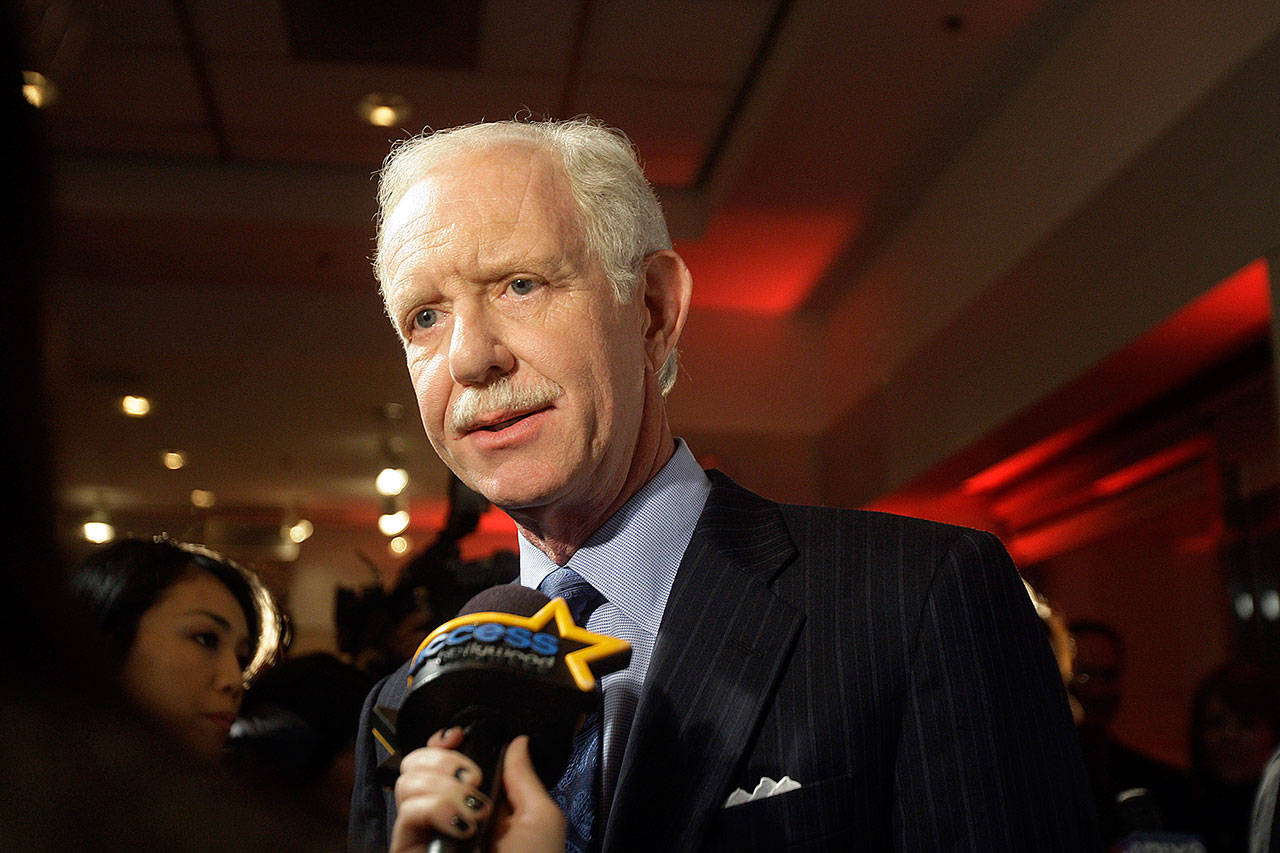Associated Press
WASHINGTON — Who are you going to trust when it comes to what’s best for the flying public? Members of Congress or the hero of the Miracle on the Hudson, retired Capt. Chesley “Sully” Sullenberger?
Proponents of privatizing air traffic control, a top priority of President Donald Trump, face fierce resistance from some Republicans, many Democrats and various advocacy groups who have a forceful voice: Sullenberger, the pilot who managed to land an airliner in the Hudson River without the loss of a single life after the plane lost thrust in both engines.
Privatization plus another proposal that would make it easier for co-pilots to get academic credit for certification have drawn congressional opposition and stalled efforts to reauthorize the Federal Aviation Administration, a must-do for Congress by Sept. 30.
Sullenberger said he considers the legislative proposals an attempt to boost the bottom lines of the airlines at the expense of the public. He’s speaking out, knowing that the actions he and his crew took that January day in 2009 have given them a bully pulpit with the American public.
“They trust us,” said Sullenberger, most recently portrayed on film by actor Tom Hanks. “They know we’re experts at what we’re talking about.”
Republicans opposed to privatization recognize they have a flying ace to make their case.
“No man was better when it came to safety standards. And then he demonstrated it that day, that he knew what he was talking about,” said Rep. Steve Russell, R-Okla. “I think we need to take pause, and take a step back, and listen.”
The push for privatization of air traffic control operations has some powerful backers, but supporters still have more convincing to do to secure a vote in the House. GOP leaders have delayed a vote until after the August recess.
The bill’s backers argue that Washington budget dysfunction and the FAA’s ineffective contract management have hindered the agency’s efforts to keep pace with technology. Major projects consistently exceed cost estimates and fall behind schedule, including a critical move to satellite-based navigation and digital communications, which will reduce airport delays.
They want an entity that operates more like a business.
“We cannot let a broken government structure and old-fashion Washington bureaucracy drag down a proud American tradition,” said Rep. Bill Shuster, R-Pa., the chairman of the House Transportation and Infrastructure Committee and the bill’s primary sponsor.
The new, non-profit would be run by a 13-member board of directors representing the numerous stakeholders invested in the nation’s skies. Meanwhile, the FAA would continue to serve as a safety regulator. Many foreign countries have gone the privatization route, including Canada, Germany and Great Britain.
Sullenberger stresses that the nation is experiencing a golden age in flight safety with no fatal commercial airline crashes in more than eight years.
“The FAA is not broken,” said Sullenberger, who added, “What this proposal does is take an extreme solution to a non-problem.”
Sullenberger argues that privatization would allow a corporate monopoly heavily influenced by the major airlines to manage the nation’s skies. It would make key investment decisions that could put profits over safety and reduce access for the general aviation community, which includes company jets, recreational pilots and agriculture sprayers.
“It gives the keys of the kingdom to the four largest airlines,” Sullenberger said. “I can guarantee you the four largest airlines don’t always have the interests of the traveling public in mind.”
Exhibit A, he said, is the shrinking seat sizes that airlines are incorporating in their planes.
Still, unions representing commercial airline pilots and air traffic control workers have endorsed privatization. Patricia Gilbert, executive vice president at the National Air Traffic Controllers Association, said the lack of a stable and predictable funding from Congress has contributed to antiquated air towers and equipment, and a shortage of air traffic control workers.
“All of those things need a focus,” Gilbert said. “And we’re not seeing that.”
Backers also say the board is too diversified for any one aspect of the aviation community to dominate it.
A Senate bill reauthorizing aviation programs ignores the privatization issue. Democratic lawmakers called it a non-starter, and some Republican lawmakers from rural states are also wary.
But the bill seeks changes in the training requirements for co-pilots. Supporters see it as a way to ease a pilot shortage faced by smaller, regional airlines. But Senate Minority Leader Chuck Schumer, D-N.Y., has threatened to block the entire FAA bill if the provision is included.
After the nation’s last fatal commercial airline crash in February 2009, Congress required that any pilot operating as a first officer, or co-pilot, with an air carrier would need a minimum of 1,500 hours of flight experience. The prior threshold had been what Sullenberger calls an “insanely low” minimum of 250 hours.” The bill would expand the type of training that could be credited toward the 1,500 hours.
Sullenberger said he feared that people watching videos in hotel ballrooms would be able to count that experience. He contends that the worst-run regional airlines are having the biggest trouble recruiting pilots. He said the nation shouldn’t lower its standards to address their concerns.
“If we were having a problem attracting primary care physicians, would we suggest the solution was to reduce medical school a year or two?” Sullenberger asked.
Talk to us
> Give us your news tips.
> Send us a letter to the editor.
> More Herald contact information.

























